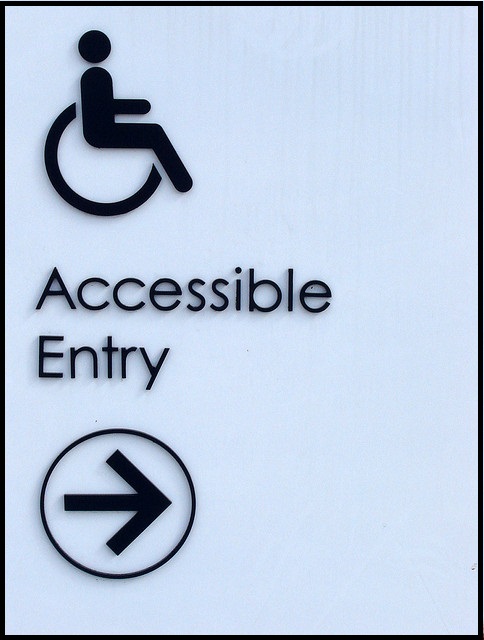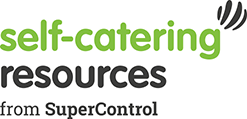Do your properties offer safe and easy access for all? If not, you may well be missing out on bookings from self-caterers with special access needs.
People with accessibility needs includes everyone from wheelchair users and those with hearing and sight impairments, to families with pushchairs and older or less mobile people, people with a long-term illness and those with learning difficulties. Also, with three-generation family holidays on the increase, some small practical steps can make your property highly appealing.
 Recent figures from VisitEngland have confirmed that there are more than 11 million people in the UK who are disabled, and the sector is worth more than £12bn to the English tourism industry alone. So, how can self-catering accommodation be made more accessible?
Recent figures from VisitEngland have confirmed that there are more than 11 million people in the UK who are disabled, and the sector is worth more than £12bn to the English tourism industry alone. So, how can self-catering accommodation be made more accessible?
It might seem like an overwhelming task, but there are a few simple, inexpensive adjustments you can employ in order to make your properties as accessible as possible, such as:
- Ensure car parks, driveways and outdoor areas are well lit, level and free from trip hazards.
- Install handrails by doors to help those who need it up and down the steps.
- Leave remotes near TVs, and provide TVs with subtitles.
- Make sure kettles are cordless, at table level and close to an electric socket.
- Add grab bars in the bath/shower.
If you have a downstairs bedroom in your property, highlight this on your website as it will be of interest to elderly or less mobile guests. Coupled with some considerate yet inexpensive additions to ease of use and access, this is an instant marketing opportunity. It’s important that you describe each property’s accessibility on your website and factual photographs, while not particularly sexy, will go a long way to providing guests with the detail they require. Don’t hold back on giving them the confidence to book your property.
The National Accessible Scheme (NAS) provides more detailed guidance for accommodation owners on how to improve access for everyone.
If you want to target this niche more specifically, you can, but it will involve a lot more work and expense.
Treworgans Farm in mid-Cornwall is one example of an accommodation provider that offers high-quality, self-catering disabled access accommodation. Owned and managed by David Eyles, Treworgans has two self-catering barns, which have a host of special features including:
- En-suite wetrooms with wheel-in showers, non-slip flooring and other specialist accessories.
- Outside decked areas with accessible seating and BBQs.
- Hearing loops.
- Plus, a number of extras that guests can use for free, such as special beds, hoists and recliner chairs.
All these options and extras are things that can be added to your SuperControl account and requested by guests at the time of booking.
Mr Eyles has always been involved in the disabled sector, as his parents worked in this field. Even still, it’s not something he ventured into lightly. He did a lot of research, and he said you have to have a good understanding of the market and what guests with accessibility issues need.
He advised: “It’s not just a matter of giving someone the keys on a Saturday morning and saying ‘there you go, enjoy your holiday’. You need to be available to your guests to help.”
However, he added, it’s an extremely worthwhile business to be in: “If we can make life better for someone, by offering them this kind of holiday, then that’s brilliant. You can see people having a great time and really benefitting from it.”
As well as being an exemplary model for accessible tourism, the business described above is a great example of how the same accommodation can be packaged slightly differently to attract guests with varying needs – essentially, the extras it offers helps it stand out from its competitors and attract more guests.
For more on how you can use options and extras to boost your profitability, keep an eye on our blog next month.




